|
Books Should Be Free Loyal Books Free Public Domain Audiobooks & eBook Downloads |
|
|
Books Should Be Free Loyal Books Free Public Domain Audiobooks & eBook Downloads |
|
Non-fiction |
|---|
|
Book type:
Sort by:
View by:
|
By: Samuel Edward Dibble (1882-) | |
|---|---|
 Elements of Plumbing
Elements of Plumbing
| |
By: Samuel J. Record | |
|---|---|
 The Mechanical Properties of Wood Including a Discussion of the Factors Affecting the Mechanical Properties, and Methods of Timber Testing
The Mechanical Properties of Wood Including a Discussion of the Factors Affecting the Mechanical Properties, and Methods of Timber Testing
| |
By: Samuel McHarry | |
|---|---|
 The Practical Distiller An Introduction To Making Whiskey
The Practical Distiller An Introduction To Making Whiskey
| |
By: Samuel Pegge (1704-1796) | |
|---|---|
 The Forme of Cury A Roll of Ancient English Cookery Compiled, about A.D. 1390
The Forme of Cury A Roll of Ancient English Cookery Compiled, about A.D. 1390
| |
By: Samuel Smiles (1812-1904) | |
|---|---|
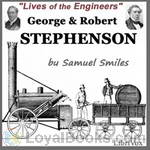 Lives of the Engineers (George and Robert Stephenson)
Lives of the Engineers (George and Robert Stephenson)
George Stephenson did not invent the steam engine, that was due to Newcomen and later to James Watt. He did not invent the steam locomotive, that was due to a number of people including Cugnot, Trevithick and others. He did not invent the Railway. Railways or tramways had been in use for two hundred years before Stephenson.The reason why Stephenson was known as ‘The father of the steam locomotive’ was that he took a primitive, unreliable and wholly uneconomic device and turning it into an efficient... | |
 Men of Invention and Industry
Men of Invention and Industry
| |
By: Samuel W. (Samuel William) Johnson (1830-1909) | |
|---|---|
 Peat and its Uses as Fertilizer and Fuel
Peat and its Uses as Fertilizer and Fuel
| |
By: Samuel White Baker (1821-1893) | |
|---|---|
 Wild Beasts and Their Ways, Reminiscences of Europe, Asia, Africa and America — Volume 1
Wild Beasts and Their Ways, Reminiscences of Europe, Asia, Africa and America — Volume 1
| |
By: Sara Cone Bryant (1873-?) | |
|---|---|
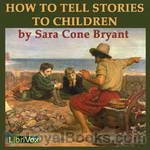 How to Tell Stories to Children, and Some Stories to Tell
How to Tell Stories to Children, and Some Stories to Tell
Sara Cone Bryant was an educator and storyteller who wrote several books on the importance of oral storytelling to children, and stories to tell children. This volume expounds on her theories and practices of telling stories to children, and provides several examples. Her conversational writing style makes this work as relevant for parents and teachers as it was 90 years ago. | |
 Stories to Tell to Children
Stories to Tell to Children
| |
 Stories to Tell Children Fifty-Four Stories With Some Suggestions For Telling
Stories to Tell Children Fifty-Four Stories With Some Suggestions For Telling
| |
By: Sara Ware Bassett (1872-1968) | |
|---|---|
 The Story of Silk
The Story of Silk
| |
 Steve and the Steam Engine
Steve and the Steam Engine
| |
 Story of Wool
Story of Wool
Mr. Clark and Donald spend a year out west to the Crescent Ranch in Idaho learning about raising sheep. | |
 The Story of Sugar
The Story of Sugar
| |
By: Sarah Knowles Bolton | |
|---|---|
 Lives of Girls Who Became Famous
Lives of Girls Who Became Famous
This book is a collection of short biographies of notable women, including Harriet Beecher Stowe, Louisa May Alcott, Florence Nightingale, and many others. | |
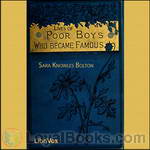 Lives of Poor Boys Who Became Famous
Lives of Poor Boys Who Became Famous
These characters have been chosen from various countries and from varied professions, that the youth who read this book may see that poverty is no barrier to success. It usually develops ambition, and nerves people to action. Life at best has much of struggle, and we need to be cheered and stimulated by the careers of those who have overcome obstacles.If Lincoln and Garfield, both farmer-boys, could come to the Presidency, then there is a chance for other farmer-boys. If Ezra Cornell, a mechanic, could become the president of great telegraph companies, and leave millions to a university, then other mechanics can come to fame... | |
By: Sarah Morgan Dawson (1842-1909) | |
|---|---|
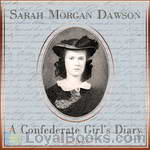 A Confederate Girl's Diary
A Confederate Girl's Diary
Sarah Morgan Dawson was a young woman of 20 living in Baton Rouge, Louisiana, when she began this diary. The American Civil War was raging. Though at first the conflict seemed far away, it would eventually be brought home to her in very personal terms. Her family's loyalties were divided. Sarah's father, though he disapproved of secession, declared for the South when Louisiana left the Union. Her eldest brother, who became the family patriarch when his father died in 1861, was for the Union, though he refused to take up arms against his fellow Southerners... | |
By: Sarah Tyson Heston Rorer (1849-1937) | |
|---|---|
 Sandwiches
Sandwiches
| |
 Made-Over Dishes
Made-Over Dishes
| |
By: Scott Nearing (1883-1983) | |
|---|---|
 The New Education A Review of Progressive Educational Movements of the Day (1915)
The New Education A Review of Progressive Educational Movements of the Day (1915)
| |
By: Seth Low (1850-1916) | |
|---|---|
 Opening Ceremonies of the New York and Brooklyn Bridge, May 24, 1883
Opening Ceremonies of the New York and Brooklyn Bridge, May 24, 1883
| |
By: Sidford Frederick Hamp (1855-1919) | |
|---|---|
 Coco Bolo: King of the Floating Island
Coco Bolo: King of the Floating Island
Sisters Margaret and Frances wait for their younger brother Edward to go for a nap before embarking on the adventure of trying to stand on the heads of their shadows. Daddy sees them and encourages them to chase further adventures of childhood, little suspecting where they will take them. - Summary by Lynne Thompson | |
By: Sidney Licht (1907-1979) | |
|---|---|
 Music in Medicine
Music in Medicine
In spite of a spirited rebirth of the movement towards the establishment of a system of healing based on music, there are many valuable uses of music in medicine which might suffer a like fate unless a critical analysis of the worth of music as a therapeutic agent is effected before Musical Therapy reaches the dubious distinction of classification as a healing cult. This book has been written with a view to preserving for medicine that which is good for patients, and in an attempt to aid musicians under medical guidance in using music to help the sick. | |
By: Sigmund Freud (1856-1939) | |
|---|---|
 Dream Psychology
Dream Psychology
From the dawn of human consciousness, dreams have always fascinated us. Do they mean something? Do dreams help us see into the future? These questions have intrigued us for centuries. Sigmund Freud was one of the first people to examine dreams seriously and interpret them in the context of our waking lives. In Dream Psychology: Psychoanalysis for Beginners, the Austrian psychoanalyst, Dr Sigmund Freud shares his exciting early discoveries that there was indeed a connection between his patients' dreams and their mental disturbances... | |
 Reflections on War and Death
Reflections on War and Death
Anyone, as Freud tells us in Reflections on War and Death, forced to react against his own impulses may be described as a hypocrite, whether he is conscious of it or not. One might even venture to assert—it is still Freud’s argument—that our contemporary civilisation favours this sort of hypocrisy and that there are more civilised hypocrites than truly cultured persons, and it is even a question whether a certain amount of hypocrisy is not indispensable to maintain civilisation. When this... | |
By: Sinclair Lewis | |
|---|---|
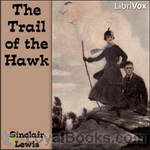 The Trail of the Hawk
The Trail of the Hawk
| |
By: Sir Francis Galton (1822-1911) | |
|---|---|
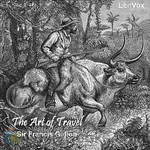 The Art of Travel
The Art of Travel
The Art of Travel is a handbook of practical advice for the adventure seeking Victorian. We hear how to organize all steps of a voyage, from the very beginnings (qualifications of a traveller, how to organize an expedition, the perfect outfit), to the actual trip (how to choose a bivouac, huts and tents, what game to shoot - and how, dealing with (hostile) savages), until the final, hopefully successful, return of the traveller (arranging memoranda). | |
By: Sir Henry Morton Stanley (1841-1904) | |
|---|---|
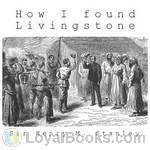 How I Found Livingstone
How I Found Livingstone
Sir Henry Morton Stanley is famously quoted for saying “Dr Livingstone, i Presume?”. Born in Wales, he migrated over to the United States at the age of 18, and eventually became an overseas correspondent for the New York Herald. In 1869 Stanley was told by James Gordon Bennett Jr to find Livingstone, a scottish missionary and explorer, who was lost in central Africa. When Stanley commented on the cost Bennett’s reply was: “Well, I will tell you what you will do. Draw a thousand pounds now; and when you have gone through that, draw another thousand, and when that is spent, draw another thousand, and when you have finished that, draw another thousand, and so on; but, FIND LIVINGSTONE. | |
By: Sir John Barrow (1764-1848) | |
|---|---|
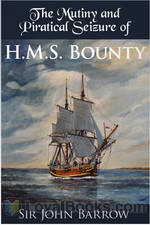 Eventful History of the Mutiny and Piratical Seizure of H.M.S. Bounty
Eventful History of the Mutiny and Piratical Seizure of H.M.S. Bounty
On December 31 1787, the HMS Bounty, a small sailing vessel embarked from Spithead Harbor, England bound for Tahiti. Her mission was sponsored by the Royal Society in London and aimed at picking up breadfruit plants and fruit from Tahiti and conveying them to the West Indies, where it was hoped they would take root and become a commercial crop. The Bounty was an old ship with a young captain and 46 young officers. The captain's cabin was converted into a potting shed for the expected breadfruit cargo... | |
By: Sir Wilfred Grenfell (1865-1940) | |
|---|---|
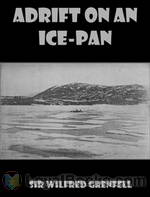 Adrift on an Ice-Pan
Adrift on an Ice-Pan
This autobiographical work describes the author’s harrowing experience caught on a small drifting piece of ice, while crossing a frozen bay by dog team on the Northern Peninsula of Newfoundland. | |
By: Solon Robinson (1803-1880) | |
|---|---|
 Guano A Treatise of Practical Information for Farmers
Guano A Treatise of Practical Information for Farmers
| |